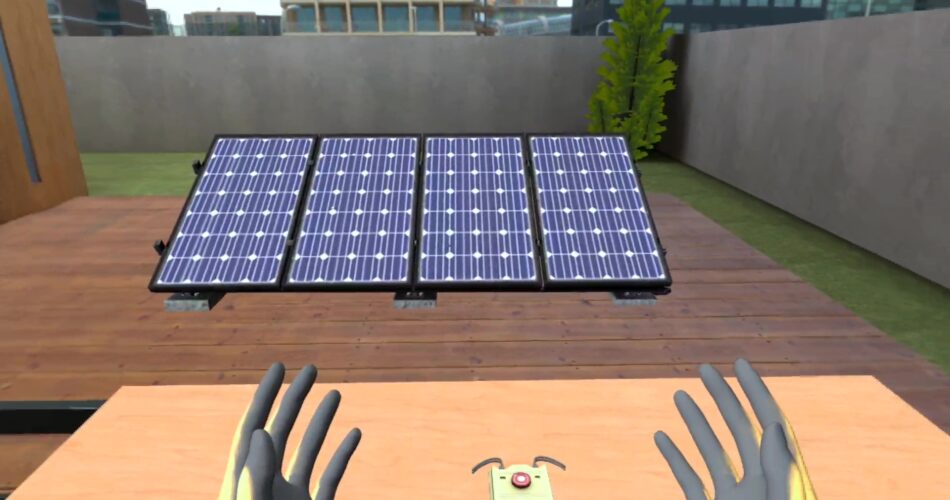In today’s fast-paced world, where technology is revolutionizing education and training, Virtual Reality (VR) simulations have emerged as a game-changing tool for hands-on learning experiences. At ImmerseLearn, we specialize in using state-of-the-art VR and 3D technologies to deliver impactful training programs that empower individuals to master skills and achieve certifications in high-demand trades.
By bridging the gap between theoretical knowledge and practical application, VR simulations have transformed how students learn, offering immersive, real-world scenarios that make learning more engaging and effective. But what are the key benefits of VR simulations for hands-on learning, and how does ImmerseLearn harness this technology to create superior outcomes? Let’s dive in!
Why Are VR Simulations Important for Hands-On Learning?
Traditional training methods often fall short when it comes to preparing students for real-world challenges. Here’s how VR simulations address these gaps:
- Enhanced Engagement: Immersive VR environments capture learners’ attention, keeping them focused and motivated throughout their training.
- Safe Practice in Risky Scenarios: VR provides a risk-free environment to practice high-stakes tasks, such as handling electrical hazards in EV training or troubleshooting heating systems in HVAC training.
- Accelerated Skill Development: With realistic simulations, learners gain hands-on experience faster, enabling them to master essential skills in a fraction of the time.
- Cost-Effective Training: By eliminating the need for physical resources, VR significantly reduces training costs without compromising quality.
- Global Accessibility: Students can access VR simulations from anywhere, ensuring that quality education is no longer limited by geographic boundaries.
How ImmerseLearn Leverages VR for Superior Training
At ImmerseLearn, we integrate cutting-edge VR technology into our programs to offer unparalleled training experiences. Our programs cover a wide range of high-demand fields, including:
- Plumbing certifications: Learn pipe installation and water system troubleshooting in immersive VR simulations.
- HVAC certifications: Gain hands-on experience in installing, maintaining, and troubleshooting heating and cooling systems.
- EV manufacturing certifications: Master diagnostics, repair, and optimization of electric vehicles.
- Solar certifications: Dive into the design, installation, and maintenance of photovoltaic systems with realistic solar training scenarios.
Unique Features of ImmerseLearn’s VR Simulations
- Free VR Headsets for Every Student: We equip learners with high-quality VR headsets to ensure an immersive training experience.
- Self-Paced Learning: Access our Learning Management System (LMS) to study anytime, anywhere.
- Realistic Scenarios: Practice real-world tasks in a safe, controlled environment, such as handling emergencies during EV battery management certifications.
- Industry-Aligned Curriculum: Our courses are designed by industry experts to meet the highest standards, ensuring job-readiness upon completion.
Real-World Applications of VR Simulations
VR simulations are transforming workforce development by making training more efficient and impactful. Here are a few examples:
- Renewable Energy: Train for photovoltaic certifications and become a solar energy expert.
- Electric Vehicles: Gain expertise in the fast-growing EV industry through programs like EV training and battery management certifications.
- Construction Trades: Develop plumbing and HVAC skills using immersive simulations, reducing the need for costly, on-site training.
By simulating these environments, learners develop the confidence and skills needed to excel in their careers, bridging the gap between theory and practice.
Frequently Asked Questions (FAQs)
1. What are the advantages of VR simulations for skill trades?
VR simulations provide hands-on training in a safe, cost-effective, and engaging manner. Programs like plumbing training and HVAC training enable learners to practice real-world scenarios, enhancing their readiness for the workforce.
2. How does VR training reduce training costs?
VR eliminates the need for physical materials and on-site facilities, making programs like solar heating certifications more affordable and accessible.
3. Can I access VR training remotely?
Yes! ImmerseLearn provides a fully online learning experience, allowing students to train from anywhere. All you need is a VR headset, which is included in your enrollment package.
4. Are VR certifications recognized in the industry?
Absolutely. ImmerseLearn’s programs align with industry standards, ensuring certifications like small wind certifications and solar certifications are highly valued by employers.
Join the Future of Learning with ImmerseLearn
Immerse yourself in the future of education with ImmerseLearn’s VR training programs. Whether you’re pursuing electric vehicle courses, solar heating installer certifications, or trade courses, our innovative approach ensures you’ll gain the skills and confidence needed to succeed.
Take the first step towards a rewarding career. Explore our programs and enroll today!

